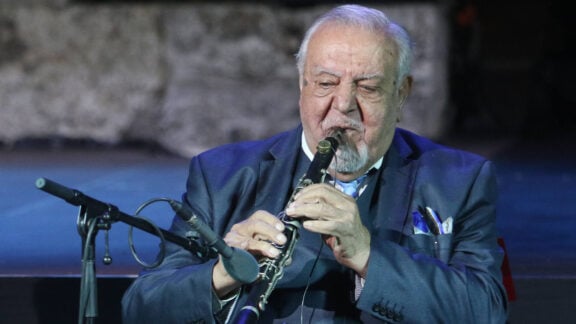Doctors will no longer be muzzled from initiating voluntary assisted dying conversations with terminally ill patients under long-called-for law changes.
A “gag clause” that banned Victorian practitioners from initiating a discussion on voluntary assisted dying (VAD) with patients would be lifted under government-led legislation.
Other proposed law changes include lifting the six-month life expectancy rule for non-neurodegenerative diseases to 12 months, shortening the time between the first and final VAD requests and simplifying the permit process.
“While our Australian-first voluntary assisted dying laws are giving Victorians the dignity of making their own decisions about the timing and manner of their death – we know we need to update them to ensure they remain fair,” Health Minister Mary-Anne Thomas said.
The moves follow a legislated five-year review into the laws, tabled in state parliament on Thursday, that found some safeguards were impeding access to the end-of-life choice.
“Currently, pockets of resistance and unclear guidance for health and care organisations and individual health practitioners can delay or create a barrier to access VAD,” said the report.
Victoria became the first state to legalise euthanasia in 2019, with Western Australia, Queensland, NSW, Tasmania and South Australia following suit.
Since enacted, 1282 Victorians have died by euthanasia.
A peer-reviewed study in July 2023 found the gag on doctors was a barrier for patients.
Former premier Daniel Andrews had repeatedly said the government would not pursue changes.
The report made five recommendations, including to provide more guidance for health practitioners and health and care services.
Enhanced community awareness of VAD and grief and bereavement supports, considering enhancements to statewide service models to cope with future demand and pushing for more federal support for VAD were among the other suggestions.
All have been accepted by the government.
The changes will improve access and support for people seeking VAD, Dying With Dignity Victoria president Jane Morris said.
There have been no reports of ineligible people getting access to assisted-dying drugs, the review said.
It included interviews and focus groups with 119 stakeholders, analysing 303 survey responses and 257 written submissions.
- WHAT ARE THE PROPOSED CHANGES TO VICTORIA’S EUTHANASIA LAWS?
* Doctors able to raise the issue of voluntary assisted dying with terminally ill patients, previously they could not
* Health practitioners who conscientiously object to assisted dying required to provide a minimum amount of information to patients
* Life expectancy access rule expanded from six to 12 months for all conditions
* Remove requirement for a third medical assessment for neurodegenerative patients, often home or bed-bound at the time of application, given six to 12 months to live
* Reduce time between the first and second access request from nine to five days
* Amend Australian citizenship, permanent residency and Victorian residency requirements
* Simplify permit processes
* Add exemption process for current interpreter requirements
- WHY ARE THE CHANGES BEING MADE?
* The laws, which passed parliament in 2017 and came into force in 2019, were reviewed after five years
* The review found improvements were needed for health practitioners to help guide patients
- WILL THE REFORMS PASS PARLIAMENT?
* The proposed changes will first go to consultation with stakeholder groups
* Once the amendments are drafted, they will go to a vote in parliament
* Premier Jacinta Allan’s Labor government will allow its MPs to make a conscience vote on the laws, as happened when they first passed parliament in 2017
* The coalition opposition is waiting to see the detail of the legislation but flagged it would also allow a conscience vote
* This means the laws could face challenges getting through
- WHO CAN CURRENTLY APPLY FOR ASSISTED DYING?
* Adults with a progressive, advanced terminal illness and less than six months to live or within 12 months for neurodegenerative diseases
* Suffering must be deemed “intolerable”
* They must be of sound mind
* Must have lived in Victoria for at least 12 months and be an Australian citizen or permanent resident
- HOW DOES THE SYSTEM WORK NOW?
* Patients must make three, clear requests
* Patients will be assessed by two experienced doctors, including at least one specialist
* Those approved will be granted permits for lethal medications, which must be self-administered
* A permit will be given for doctors to administer medication but only where the patient is physically unable
* Only chemists at The Alfred Hospital can prepare the medication
* Doctors do not have to be present when patients administer medication
* The process to apply and receive medication will take at least 10 days
* Unused lethal medication must be returned within 15 days of death
* An independent review board oversees each step of the process
* The coroner is notified of each death and death certificates record “voluntary assisted dying”
- PENALTIES FOR MISUSE
* If someone breaches the self-administration permit, they face potential life imprisonment
* Anyone who induces a person to request assisted dying faces up to five years’ jail and substantial fines
* Doctors who suggest the assisted dying scheme to patients face a professional misconduct investigation
* Since 2019, 1282 Victorians have accessed voluntary assisted dying services
* There have been no reports of ineligible people getting access to the scheme
Lifeline 13 11 14
beyondblue 1300 22 4636
Source: AAP









